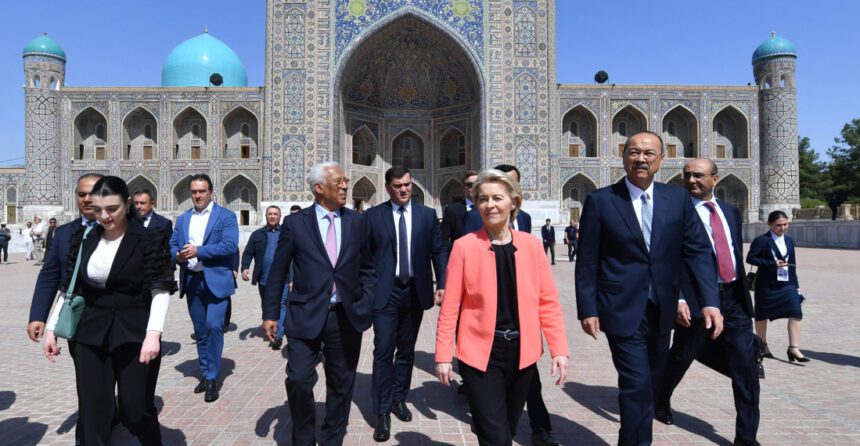European Commission President Ursula von der Leyen said Friday that reopening borders between Armenia, Turkey, and Azerbaijan after decades of closure would be a “game changer” for regional connectivity and economic integration.
Speaking at the first European Union–Central Asia Summit in Samarkand, Uzbekistan, von der Leyen emphasized the EU’s commitment to deeper cooperation with Central Asian nations and highlighted the strategic potential of the Trans-Caspian Transport Corridor, a route that could halve travel times between Europe and Central Asia.
“Smooth border crossing within Central Asian and South Caucasus countries is essential to reach the Black Sea,” she said. “After three decades of closure, the opening of the borders of Armenia with Türkiye and Azerbaijan is going to be a game changer.”
Her remarks come amid renewed diplomatic engagement in the South Caucasus, where the EU has sought to position itself as a mediator and development partner in the wake of Russia’s waning influence due to its war in Ukraine.
At the summit, von der Leyen and European Council President Antonio Costa met with leaders from Kazakhstan, Kyrgyzstan, Tajikistan, Turkmenistan, and Uzbekistan. The EU announced a €12 billion Global Gateway Investment Package targeting improvements in transport, energy, digital, and raw materials infrastructure.
Von der Leyen also emphasized Europe’s growing interest in the region’s clean energy and critical raw materials sectors. “We want to help you develop local industries and benefit more from your natural resources,” she said, citing EU-backed investments in Uzbekistan’s Almalyk copper mine.
In an indirect warning to Moscow, von der Leyen promoted new EU satellite connections that would provide high-speed internet “without your neighbors acting as gatekeepers.” She added that Russia is “no longer a reliable partner” and urged Central Asian states to crack down on the re-export of Western goods to Russia.
While human rights were not a formal agenda item, EU officials stated that concerns would be raised privately. “We’re not going there to preach,” one official told Agence France-Presse, “but to maintain dialogue.”
The summit marks a significant step in the EU’s efforts to expand its geopolitical and economic footprint in Eurasia, with a focus on connectivity, resilience, and strategic independence from Russian influence.



